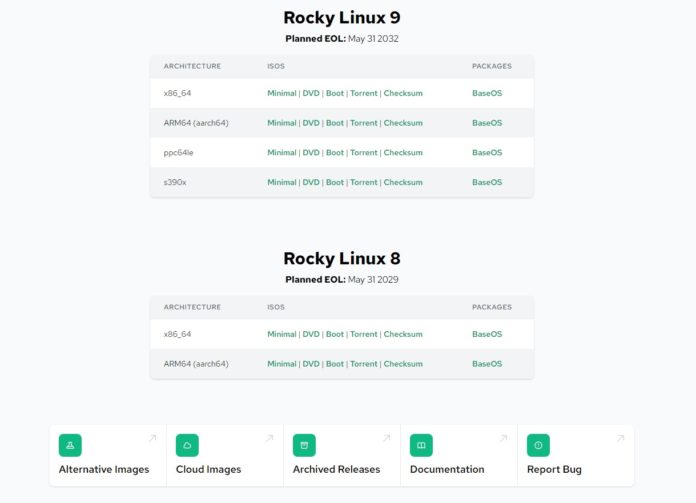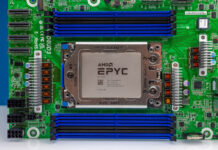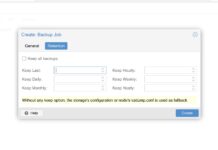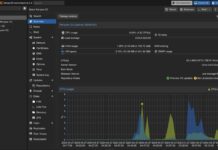Today we get a new version of Rocky Linux. Rocky Linux 9.0 starts the new lineage of the RHEL offshoot that is replacing CentOS (along with AlmaLinux.) The new OS is a big deal because organizations have been migrating away from CentOS after IBM-Red Hat abruptly discontinued the popular OS. Rocky Linux is one of the new generations of distributions trying to fill that void so a new version is important.
Rocky Linux 9.0 Released
Here are the key highlights for Rocky Linux 9.0 aside from keeping pace with RHEL in many areas:
Desktop
Rocky Linux 9 ships with GNOME 40 as the default desktop environment. Redesigned core apps, settings, and UI make it easier than ever to use Rocky Linux as a desktop operating system. The Activities look and feel provides a better experience when working, launching applications and arranging your personal workspace.
Other notable improvements for desktop usage include:
- Software can be run on a separate graphics card by right-clicking and selecting the appropriate option
- The ability to mute notifications by selecting Do not disturb, which will appear as a separate button in the notification
- Each screen can use a different refresh rate
- The Activities program allows you to group application icons into folders using a drag-and-drop method
- Fractional display scaling
File system
XFS now supports Direct Access (DAX) operations, permitting direct access to byte-addressable persistent memory, helping avoid the latency of using traditional block I/O conventions. NFS introduces the “eager write” mount option to help reduce latency.
Language runtimes and tools
Rocky Linux 9 has many of the latest runtimes and compilers, including GCC 11.2.1, LLVM (13.0.1), Rust (1.58.1), and Go (1.17.1).
Rocky Linux 9 has updated versions of developer toolchains including GCC (11.2.1), glibc (2.34), and binutils (2.35). New features in the GCC compiler help developers better track code flow with improved debugging options, and write optimized code for efficient hardware usage.
Rocky Linux 9 extends the module packaging features available in Rocky Linux 8. All packaging methods, such as Software Collections, Flatpaks, and RPMs, have been incorporated into application streams, making it easier for developers to use their preferred packages.
- Python 3.9 will be supported for the entire lifecycle of Rocky Linux 9 and comes with many new features, including timezone-aware timestamps, new string prefix and suffix methods, dictionary union operations, high-performance parsers, multiprocessing improvements.
- Node.js 16 include an upgrade to the V8 engine to version 9.2, a new Timer Promises API, a new web streams API, and support for npm package manager version 7.20.3. Node.js is now compatible with OpenSSL 3.0.
- Ruby 3.0.3 provides several performance improvements, along with bug and security fixes. Important improvements include concurrency and parallelism, static analysis, pattern matching with case/in expressions, redesigned one-line pattern matching, and find pattern matching.
- Perl 5.32 provides bug fixes and enhancements, including Unicode version 13, a new experimental infix operator, and faster feature checks.
- PHP 8.0 provides bug fixes and enhancements, including the use of structured metadata syntax, newly named arguments that are order-independent, and improved performance for Just-In-Time compilation.
Security
Root user authentication with a password over SSH has been disabled by default. The OpenSSH default configuration disallows root user login with a password, thereby preventing attackers from gaining access through brute-force password attacks. Instead of using the root password, users can access remote systems using SSH keys to log in.
OpenSSL 3.0 adds a provider concept, a new versioning scheme, and improved HTTPS. Built-in utilities have been recompiled to utilize OpenSSL 3. OpenSSL 3.0’s new FIPS module prevents non-FIPS algorithm use while the FIPS flag can be set in the kernel without the need to switch OpenSSL to FIPS mode.
System monitoring
The Cockpit web console has an improved performance metrics page that helps identify causes of high CPU, memory, disk, and network resource usage spikes. (Source: Rocky Linux)
In terms of support, Rocky Linux 9 will be supported until May 31, 2032, while RL8 will be supported until three years earlier, or May 31, 2029.
Final Words
It is important for this new breed of open source distributions to show that they can maintain a release cadence roughly in-line with Red Hat. Coming out with RL9 is a step in the right direction here. Still, we will note that where there was a team (funded by Red Hat) working on CentOS, now that market has largely gone to Rocky Linux, AlmaLinux, Oracle Linux, and Debian distributions like Ubuntu. Open source software is always a bit territorial/ tribal, but there are now duplicative efforts in the space. Still, perhaps the most important for a distribution is simply being able to show that it can continue to have new releases so this is a big milestone for Rocky.
If you want to keep up with what happened to force this new distribution you can read: Red Hat Goes Full IBM and Says Farewell to CentOS
Here is the Rocky Linux 9.0 download page.





Loosing CentOS just like overnight was a tough one …